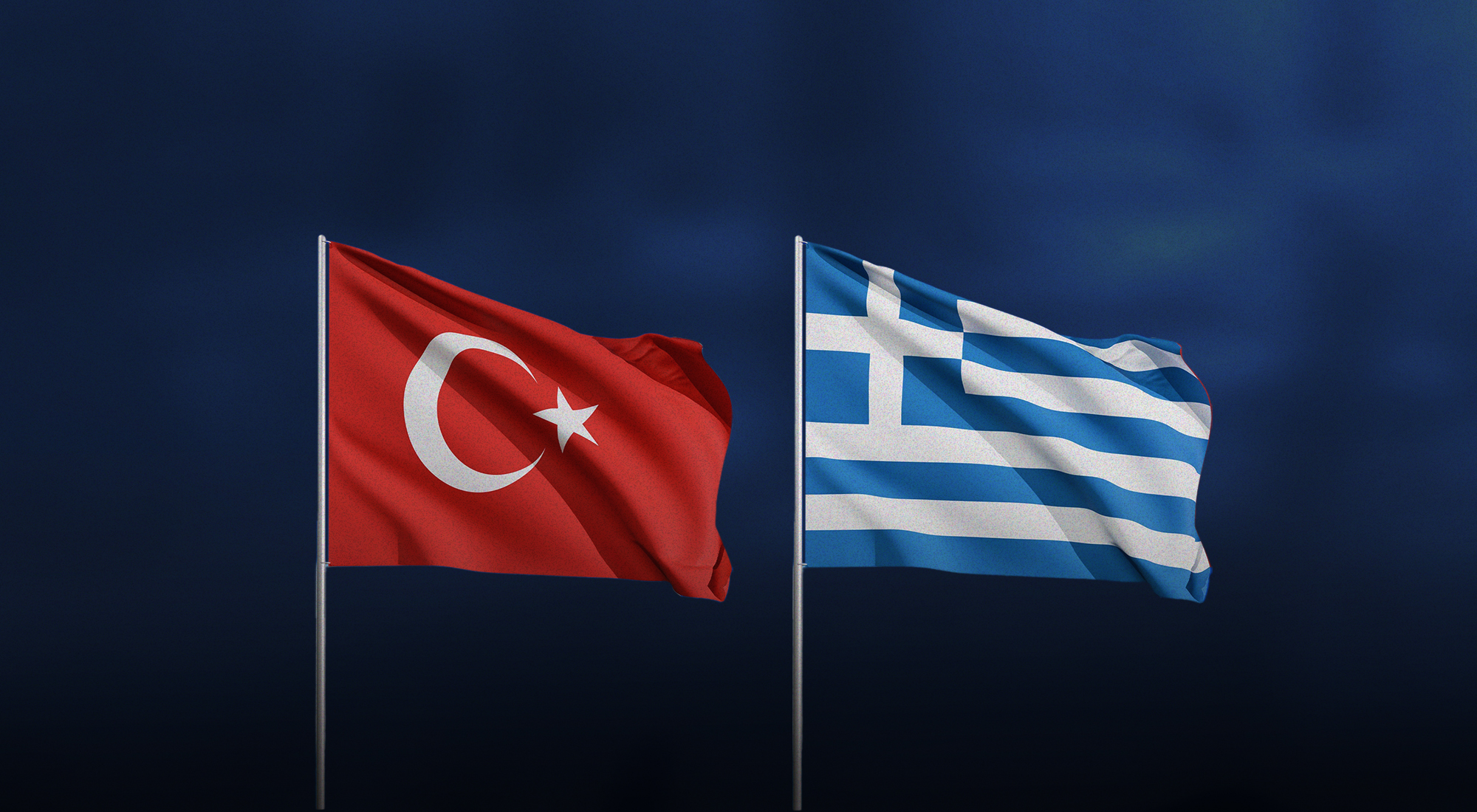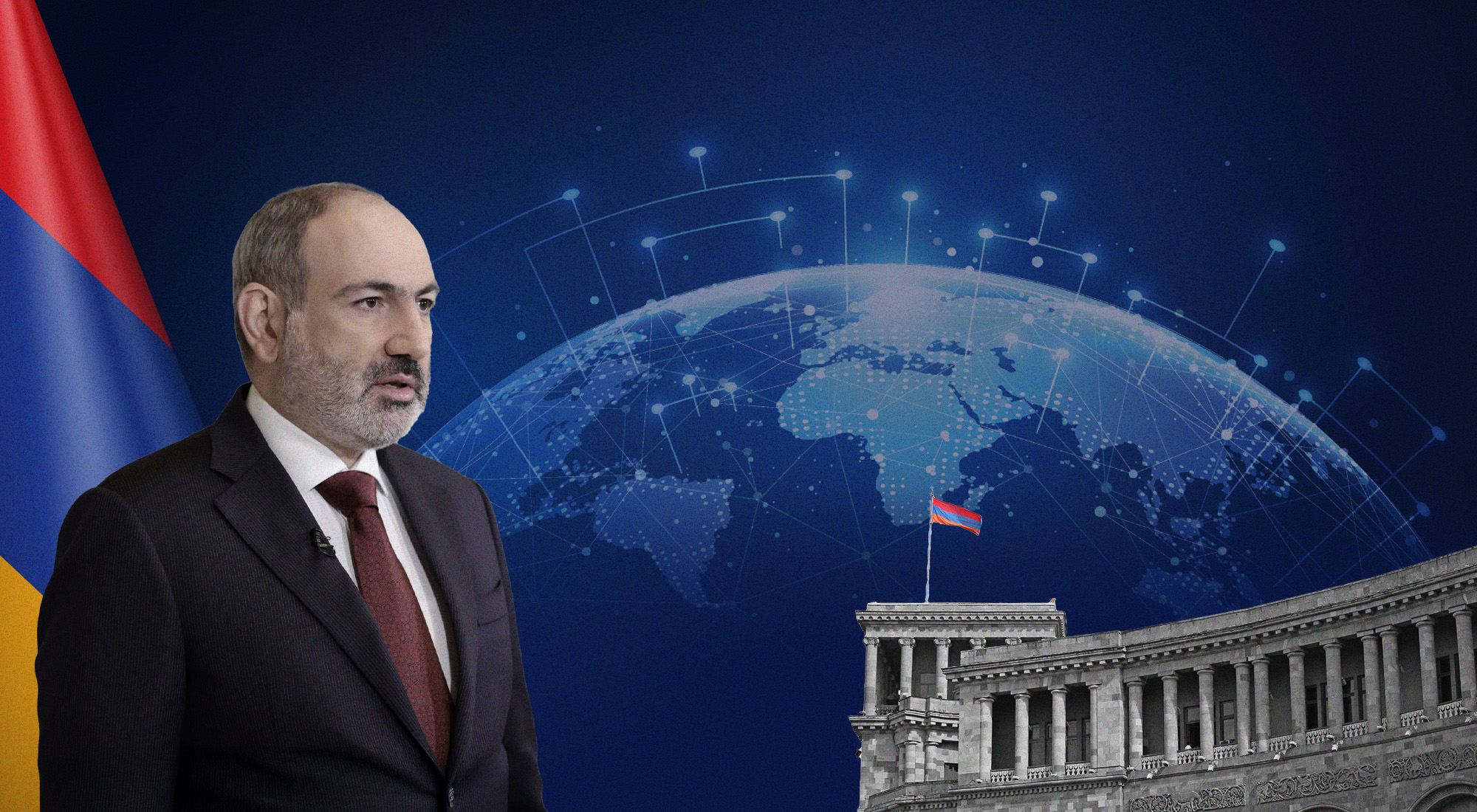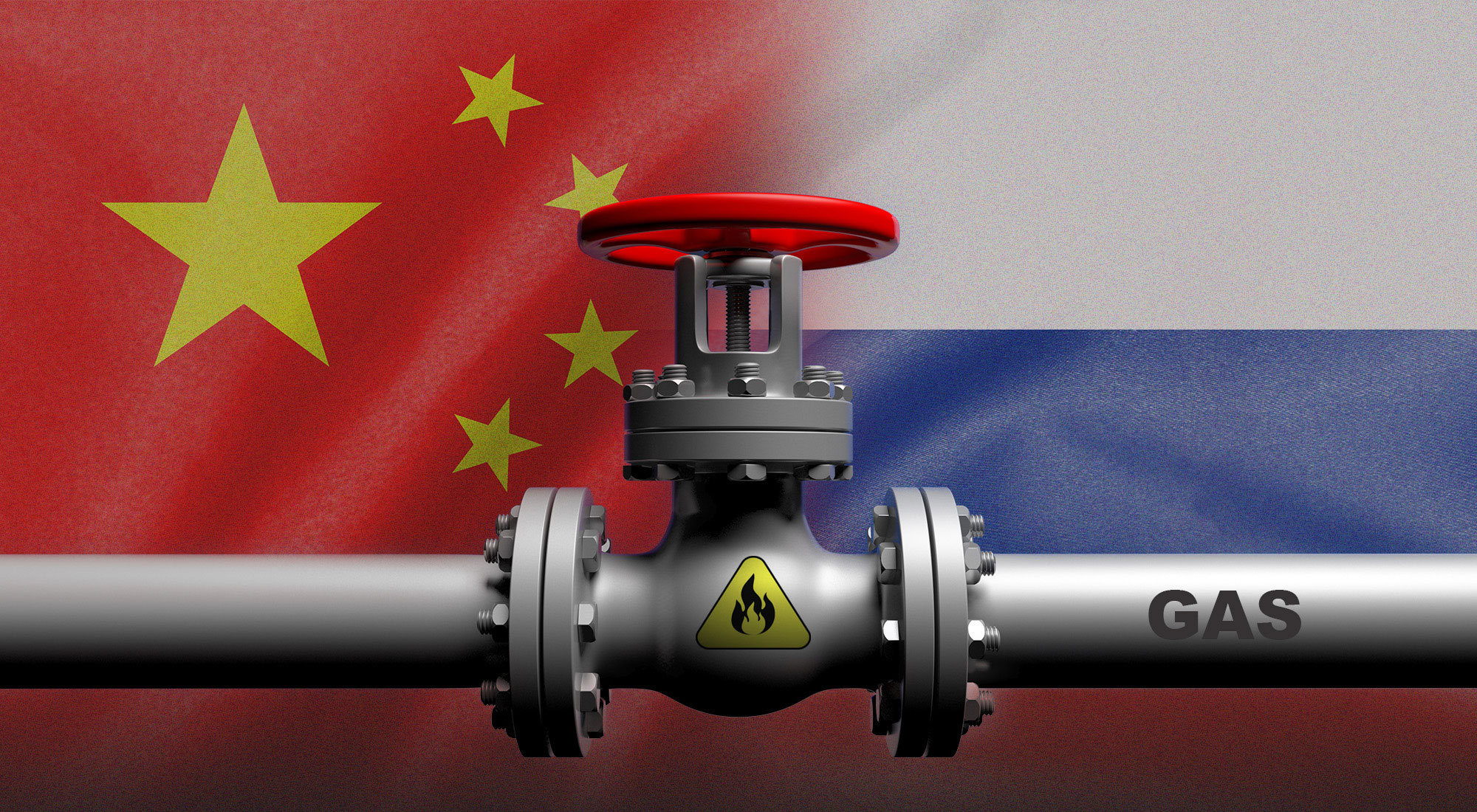Strategic Cohesion: Türkiye and Azerbaijan
Türkiye’s ties to Azerbaijan have a particular place in Ankara’s broader foreign policy positioning. Rhetorically grounded on shared language, culture and worldview, Azerbaijan has been one of Türkiye’s closest partners for the last decade. Indeed, Türkiye’s outreach to the Caucasus is positioned around its strategic relationship with Azerbaijan, and policymakers in Ankara equate the Azerbaijani and Turkish national interests. The multifaceted partnership has layers spanning military, economic and political links—and is Türkiye’s most significant relationship in the wider Turkic world.
This position has practical policy implications and has been the main point in the protracted process of negotiations with Armenia ever since the dissolution of the Soviet Union. Türkiye conditions normalization with Armenia on Yerevan’s recognition of Azerbaijan’s sovereignty, underlining a non-negotiable regional alignment and solidarity. This includes the removal of claims on Azerbaijani territory from the Armenian constitution and dialogue with Türkiye without preconditions on referral to the tragic events of 1915. Following the Second Karabakh War, the 2021 Shusha Declaration formalized an alliance between Türkiye and Azerbaijan under the motto “one nation, two states,” highlighting their shared national and spiritual heritage.[1]
Türkiye-Azerbaijan ties form a model for Ankara’s foreign policy engagement that could be replicated and expanded across the Caucasus region, particularly now as peace and diplomatic deal-making appear to be the spirit of the period. National sovereignty, particularly in regions like the South Caucasus, must be actively defended and maintained through unity, infrastructure, and strategic alliances, as shown by Azerbaijan’s approach to Karabakh. This model has an extensive economic integration element, which in fact forms the cornerstone of ties between the two countries.
Azerbaijan’s national oil company, SOCAR, is one of the largest foreign direct investors in Türkiye. The two countries share a common trade route through the Baku-Tbilisi-Kars (BTK) railway and energy transportation infrastructure through the Baku-Tbilisi-Ceyhan (BTC) pipeline, which are both integral to regional markets. This is further complemented by the Trans-Anatolian Natural Gas Pipeline (TANAP) and the Trans-Adriatic Pipeline (TAP). These projects harmonically create a common trade infrastructure, which serves both Azerbaijan’s and Türkiye’s broader strategic goals.
Azerbaijan positions itself as a key geopolitical and economic link between Europe, Central Asia, and the Middle East—thanks to its strategic location, energy resources, and major investments in transport and green energy infrastructure, including a new trans-Caspian green energy corridor.[2] The President of Azerbaijan, H.E. İlham Aliyev, declared, “Azerbaijan is no longer seeking validation from the West.”[3] Instead, it feels confident and self-sufficient in its regional alliances across the South Caucasus, Central Asia, and the Islamic and Turkic worlds—prioritizing partnership over dependency in a rapidly changing global order. With liberal institutions in decline and U.S. consistency in question, Global South nations like Azerbaijan are pushing to reduce dependency and resist being tools of great power competition.
In this context, small, flexible coalitions like the one between Azerbaijan and Türkiye underscore the rise of “minilateralism”, an alternative way that empowers developing states to assert sovereignty, build resilience, and advance priorities without dependence on slow multilateral consensus or unreliable great powers.[4] This partnership serves a critical function by diversifying their economies and reducing vulnerability to external shocks, thereby enabling more autonomous policy shifts and empowering them through targeted problem-solving. While it reflects fragmented priorities, it also expands the range of available policy options.
In March 2025, Azerbaijan and Armenia reached an agreement on a draft peace treaty after nearly three years of negotiation. This is a historic step toward establishing diplomatic relations and ending a conflict that has spanned decades, particularly around the Karabakh region. Azerbaijan’s proposal of five core principles for normalization in March 2022 forms the basis of the agreement. These are recognition of respect for the sovereignty, territorial integrity, inviolability of internationally recognized borders and political independence; dropping territorial claims against each other and acceptance of legally binding obligations not to raise such a claim in the future; obligation to refrain from undermining the security of each other; delimitation and demarcation of the state border; and unblocking of the transportation and means of communication.[5] Between 2022 and late 2024, both countries exchanged revisions over ten times. In September 2024, Armenia submitted a new seventeen-article draft with updates, and by December 2024, fifteen of those articles had been agreed upon.
The final two critical issues—now reportedly resolved in draft agreements—centered on the withdrawal of EU observers from the border and the dropping of mutual legal claims.[6] Azerbaijan had demanded the immediate removal of EU monitors, citing concerns over France’s strong influence and questioning its neutrality as an observer. Armenia, viewing their presence as a vital security guarantee, extended the mission’s mandate until 2027. The second issue involved Azerbaijan’s insistence that Armenia renounce demands for compensation and historical territorial claims. Baku, in turn, cited approximately US$150 billion in damages allegedly caused during the occupation of Karabakh between 1993 and 2023.
If/when Armenia agrees to these conditions for signing a peace treaty with Azerbaijan, it can also contribute to and benefit from similar “minilateral” arrangements with Türkiye in the South Caucasus. The ever-expanding trade infrastructure in the region has room to accommodate Armenia’s national economic interests as well, all the while contributing to its integration into global markets and gradual disengagement from the EU’s sphere of influence. Clearly, global trade and economic influence are shifting East and South, driven by middle powers and regional collaboration rather than traditional Western dominance.[7] The strong relationship between Azerbaijan and Türkiye, therefore, acts as a gravitational force in the Caucasus region and has the potential to attract third countries such as Armenia and Georgia to this burgeoning regional initiative.
Recent Developments between Türkiye and Armenia
After the devastating earthquake on 6 February 2023 that hit southeastern Türkiye and northern Syria, the Türkiye-Armenia border was opened for humanitarian reasons in response to the Armenian government’s interest in aiding ethnic Armenians in Syria.[8] This marked a rare instance of cooperation between Ankara and Yerevan on the backdrop of improving ties ever since both governments appointed special envoys in 2021 in the hope of normalization between the two sides.[9]
To that effect, some progress has been made. Both sides have agreed to allow third-country nationals to cross the land border between the two countries in 2022,[10] but three years later, it remains unclear when this agreement will be implemented.[11] Turkish President Recep Tayyip Erdoğan and Armenian Prime Minister Nikol Pashinyan have been in regular contact, most notably with the PM’s visit to the Turkish House in New York City on the sidelines of the UN General Assembly last year.[12] More recently, a group of journalists, including the state-funded TRT World, visited Armenia upon Yerevan’s invitation to conduct an exclusive interview with Pashinyan,[13] which reportedly drew the ire of Baku due to Ankara’s apparent negligence of joint coordination in advance.
These developments come against the backdrop of a wider trend of détente in the Caucasus region—particularly between Armenia and Azerbaijan.[14] While the particulars of the initial agreement in March that would see an end to decades-long hostilities are currently being smoothed out by both sides, the Armenian constitution still makes claims on Azerbaijani territory, a major sticking point for Baku. When asked about constitutional changes as a precondition for signing a peace agreement, Turkey’s special envoy, Ambassador Serdar Kılıç, highlighted that “it is a domestic issue in Armenia, and the Armenian people and Armenian institutions are going to decide how and when they are going to conduct that amendment process.”[15] Still, the progress in relations is in large part due to the persistence of Armenian Prime Minister Pashinyan. While Pashinyan has faced major domestic scrutiny over his desire to pursue peace, he is determined to constructively engage both Türkiye and Azerbaijan in the process. Armenia now recognizes Azerbaijan’s sovereignty over Karabakh, and Yerevan does not expect that the Armenian population will return for resettlement in the region.
The wider détente, however, is inherently linked to the power play in the South Caucasus, and Armenia’s—or more specifically Pashinyan’s—desire to see Russian influence in the region checked, as well as Azerbaijan’s interest toward reducing France’s role in Armenian military expansion.[16] The recent agreement between Armenia and Azerbaijan makes provisions for third countries and observers to withdraw their presence from frontier areas, which—if realized in its entirety—could see Armenia’s integration with the regional minilateral. By virtue of its geographic proximity, close relationship to Azerbaijan, and overarching influence in the Caucasus, Türkiye plays a pivotal role in the emerging balance of power among competing poles—both regional and global. The prospect of normalization between Türkiye and Armenia is now more realistic than it has ever been, largely because of facts on the ground and political agency on both sides.
Moving Forward with Regional Normalization
Despite progress in finalizing a peace between Baku and Yerevan, the implementation phase remains uncertain. In the three-way dialogue between Türkiye, Azerbaijan, and Armenia, there are disagreements on how and when the articles agreed upon in March 2025 will be enacted. These hurdles can jeopardize the process.
Türkiye-Armenia ties saw a positive momentum under Prime Minister Pashinyan as he quickly engaged with Türkiye after the Karabagh War in 2020 and focused on a comprehensive normalization package without referring to historical grievances of 1915.[17] Recent strong remarks by Pashinyan about Ankara’s leadership during the visit by Turkish journalists underscored his keen interest in this intricate public diplomacy mission.
Regardless of Pashinyan’s positive outreach, however, the final peace may still be distant. Armenia is seen as deliberately dragging out the process under the influence of external actors, particularly France, using EU observers to maintain leverage. As Azerbaijan calls for confidence-building steps with Armenia and proposes a gradual path toward regional integration in the South Caucasus, it remains rightly cautious of foreign involvement shaping post-war regional dynamics. President İlham Aliyev criticized the former U.S. administration under Joe Biden and Anthony Blinken for their pro-Armenian bias, imposing unjust sanctions, and undermining U.S.–Azerbaijan relations.[18] He urged vigilance as “Armenia continues to purchase weapons and resists the dissolution of the (now obsolete) OSCE Minsk Group”, signaling that revanchist hopes are still alive—both in Yerevan and abroad.[19]
Beyond the political agency of Armenia’s leadership, the regional setting is also aligning to accommodate a normalization agreement soon. Türkiye’s policy on Armenia has been directly linked to safeguarding the national interests of Azerbaijan, even if this meant that Türkiye’s ties to Armenia remain idle. The Turkish foreign policy elite has clearly articulated this position and highlighted the unique fraternal relationship between Ankara and Baku. The brotherly relationship had its baptism of fire during the height of clashes between Azerbaijan and Armenia in Karabakh, where Turkish armed drones proved instrumental in Baku’s victory to reclaim the land.
As Yerevan and Baku seek to re-establish ties under a peace agreement, and with Armenia more likely than ever to cede any territorial claims on Azerbaijan, there is an opening for Türkiye-Armenia ties as well, although this course is also riddled with potential risks. The crux of a tripartite agreement must address Azerbaijan’s key demand for amendment in Armenia’s constitution to reflect the reality on the ground—Azerbaijan’s full sovereignty over Karabakh. However, given the unstable political environment in Armenia, Pashinyan’s political will is finite. A far more hardline government antagonistic to both Türkiye and Azerbaijan and supported by the EU, could emerge and potentially derail the process.
Regardless of these risks, the proclamation of an initial agreement on main points has invariably given a new lease of life to Türkiye-Azerbaijan-Armenia ties. This also comes amidst a broader shift in the region’s power dynamics and a period of expanding Turkish influence in the Middle East—with the Caucasus an integral adjacent arena to this geopolitical arena. With Russia’s influence in Syria having eroded and Moscow looking to direct all its energy to the war in Ukraine, the trilateral accord might be aptly timed. It would also reinforce Turkish influence over the Caspian Sea and the Turkic world at a time of the EU’s heightened activism to redesign the region in its own interests.
Despite historical grievances and Türkiye’s strong defense commitments to Azerbaijan, Armenia can cooperate with Ankara to further its own strategic agenda. Prime Minister Pashinyan has been persistent in his mission to balance Russia’s influence in the country by integrating with Europe. Türkiye could be a key component of Armenia’s strategy to diversify its partnerships, which should be viewed as an asset for the political leadership in Yerevan. Indeed, it is not unthinkable that Armenia could enter Türkiye’s defense orbit, potentially becoming a client of Türkiye’s burgeoning defense industry. There is precedent for such a scenario, as some of Türkiye’s former regional competitors like Egypt, the UAE, and Saudi Arabia have emerged as the country’s most significant defense clients. Türkiye offers an accessible route to global integration with Armenia, which in turn would complement its wider defense goals in the Caucasus. Defense integration and the topic of strategic alignment in the Armenian case will likely be a major topic of discussion for talks as they mature beyond the scope of normalization.
Prospects: A Mini-Schengen?
Türkiye’s economic, political and security integration with the Caucasus is deep and layered across both strategic and societal levels. Türkiye shares extensive strategic and military ties with Azerbaijan as well as Georgia. Geographic proximity enables closer cooperation in intelligence sharing and trade. Besides politics, there are also real-life ramifications for citizens of these countries, reflected in the ease of travel arrangements adopted under the leadership of Türkiye.
Turkish citizens can travel to Azerbaijan and Georgia with their national identity cards and vice versa. In addition, they can spend up to a year in Georgia with their passport without the need for a long-term visa. Georgia practices a similar arrangement with Armenia, eliminating the need for passports for cross-border travel, thanks to extensive information sharing between the sides and prospering economic relations. Both Azerbaijan and Georgia are desirable destinations for Turkish firms. While Turkish businesspeople face extensive visa processing periods and restrictions on travel to the EU—despite the existence of a Customs Union—such obstacles are largely absent in Türkiye’s outreach to Azerbaijan and Georgia.
This model is foretelling of how the region could develop under Türkiye’s free travel initiative, dubbed a “Mini-Schengen” for the sake of clarity. This draws inspiration from the ease of travel between EU member states in the Schengen area. While EU-level political integration is unlikely to be the case in the Caucasus, limited integration that focuses on real societal and economic impacts is viable and indeed one of the hallmarks of Türkiye’s foreign policy agenda. Visa exemptions and ease of travel arrangements with third countries are not only good for cross-border trade but are also favorable within Türkiye’s domestic sphere as well.
There are several ways that this model could come to light. First, after a peace agreement between Azerbaijan and Armenia, Türkiye, Azerbaijan, Georgia, and Armenia could agree to a prolonged period of visa-free travel for their citizens in an integrated common travel area. This model exists in places such as the Arab Gulf and the United Kingdom/Ireland. Third-country nationals holding valid residency in each of the countries would also benefit from the scheme. Easier border crossings and the elimination of passports for travel could further complement the process. Visa policies and biometrics storage could also be harmonized between the sides. There is a precedent for this, as both Türkiye and Georgia have harmonized their biometric procedures with the EU, already creating a common framework to operate from.
With the ease of travel, a limited common market and the free flow of goods would also follow. This aspect would be of great concern for Armenia, which under Prime Minister Pashinyan is seeking to write its own story and exit foreign spheres of influence, not only militarily but also economically. Guest worker programs could also be integrated into the regional initiative, with citizens allowed to work in all four countries for a specified period without the need for prior authorization—there are already about two million Azerbaijanis and a hundred thousand Armenians working in Türkiye, some of the latter without authorization. This could see a spur of economic activity in the region. Local demand from Türkiye is already a major economic driver and could be complemented by the diverse economies of all states involved.
This initiative could ascribe a novel sense of regional identity to the Caucasus. Türkiye, Azerbaijan, Armenia and Georgia already share common histories, cuisines, languages, religions, and a common civilizational consciousness. Given that the Western world—particularly the EU—is unlikely to seek further integration due to political and economic constraints, a minilateral by the countries of the Caucasus could have a major impact on the global stage. The initiative would also usher in the creation of a new regional bloc, which could act as a counterweight against foreign powers and fit with Türkiye’s broader goal to become a regional economic powerhouse.
Conclusion
The shifting dynamics in the South Caucasus present a rare window for meaningful regional integration, driven by economic interdependence, evolving security considerations, and a growing appetite for minilateral cooperation. Türkiye’s deep-rooted ties with Azerbaijan and Georgia, along with improving relations with Armenia, position it as a key architect of this emerging framework—one that prioritizes connectivity, stability, and pragmatic diplomacy.
Armenia, in particular, stands to gain from embracing this momentum. By integrating into regional trade and infrastructure networks, Yerevan can reduce its dependency on traditional patrons like Russia and the EU and diversify its geopolitical alignments. A successful peace agreement with Azerbaijan—bolstered by Türkiye’s involvement—would mark a transformative step, enabling Armenia to participate in initiatives such as the proposed “Mini-Schengen” model that could facilitate free movement, enhance trade, and create employment opportunities across borders.
This vision of regionalism is not rooted in lofty political integration but in tangible, real-life benefits: visa-free travel, shared infrastructure, and coordinated economic initiatives. Such cooperation could pave the way for a new Caucasian identity—based on shared heritage, mutual benefit, and strategic autonomy from great power rivalries.
Challenges persist, especially with unresolved tensions and the risk of external interference. Yet, the outlines of a more peaceful, prosperous, and interconnected Caucasus are visible. Türkiye’s leadership—anchored in strategic partnerships, economic outreach, and cultural diplomacy—can help turn this vision into reality, positioning the Caucasus as a resilient, integrated region in a rapidly shifting global order.
[1] “Shusha Declaration on Allied Relations between the Republic of Azerbaijan and the Republic of Turkey,” Official Website of President of Azerbaijan Republic,” President of the Republic of Azerbaijan: İlham Aliyev, June 16, 2021, https://president.az/en/articles/view/52122.
[2] İlham Aliyev, “Facing the New World Order” (ADA University Policy Forum: Facing the New World Order, Baku, Azerbaijan, April 9, 2025), https://president.az/en/articles/view/68514.
[3] Ibid.
[4] Rachael Rudolph, “Geopolitical Shifts and Their Impact on Regional Sovereignty” (ADA University Policy Forum: Facing the New World Order, Khankendi, Azerbaijan, April 8, 2025).
[5] Leyla Abdullayeva, “Xarici İşlər Nazirliyi | XİN,” Republic of Azerbaijan: Minister of Foreign Affairs, 2022, https://www.mfa.gov.az/en/news/xin.gov.az.
[6] Ramin Sadık, “Azerbaycan ve Ermenistan barışa çok mu yakın? – Fikir Turu,” Fikir Turu (blog), March 17, 2025, https://fikirturu.com/jeo-politika/azerbaycan-ve-ermenistan-barisa-cok-mu/.
[7] Urs Unkauf, “New Global Order: Expectations from Economic Transformation and Digital Revolution” (ADA University’s Policy Forum, Khankendi, Azerbaijan, Aril 2025).
[8] “Armenia to temporarily open Türkiye border for aid to Syria,” Hürriyet Daily News, March 20, 2025, https://www.hurriyetdailynews.com/armenia-to-temporarily-open-turkiye-border-for-aid-to-syria-207137.
[9] “Türkiye-Armenia dialogue has never been so active: Pashinyan,” Hürriyet Daily News, February 5, 2025, https://www.hurriyetdailynews.com/turkiye-armenia-dialogue-has-never-been-so-active-pashinyan-205472.
[10] Handan Kazancı, “Türkiye, Armenia agree to allow border crossing for visiting 3rd country citizens,” July 1, 2022, https://www.aa.com.tr/en/asia-pacific/turkiye-armenia-agree-to-allow-border-crossing-for-visiting-3rd-country-citizens/2628228.
[11] MassisPost, “Armenia-Turkey Border ‘Margara’ Checkpoint Now Operated Solely by Armenian Border Guards,” MassisPost (blog), March 2, 2025, https://massispost.com/2025/03/armenia-turkey-border-margara-checkpoint-now-operated-solely-by-armenian-border-guards/.
[12] “Türkiye, Armenia inch closer to full normalization,” Daily Sabah, September 25, 2024, https://www.dailysabah.com/politics/diplomacy/turkiye-armenia-inch-closer-to-full-normalization.
[13] “Turkish Journalists Visit Armenia on State Budget for Exclusive Interview with PM Pashinyan,” The Armenian Report, March 12, 2025, https://www.thearmenianreport.com/post/turkish-journalists-visit-armenia-on-state-budget-for-exclusive-interview-with-pm-pashinyan.
[14] Elnur Enveroglu, “Turkiye, Armenia, and S Caucasus: Shifting alliances amid geopolitical recalibration,” AZERNEWS, March 25, 2025, https://www.azernews.az/analysis/239499.html.
[15] “Turkish Envoy Serdar Kılıç: Constitutional Amendment Is Armenia’s Domestic Issue,” News, Politics, Caucasus Watch (blog), April 14, 2025, https://caucasuswatch.de/en/news/turkish-envoy-serdar-kilic-constitutional-amendment-is-armenias-domestic-issue.html.
[16] “Azerbaijan Condemns France’s Role in Armenia’s Military Expansion, Slams Hypocrisy,” Politics, Trend.Az, April 14, 2025, https://en.trend.az/azerbaijan/politics/4030336.html.
[17] Nigar Göksel and Philip Gamaghelyan, “Seizing the Moment: Armenia and Azerbaijan at a Crossroads,” War on the Rocks, December 5, 2024, https://warontherocks.com/2024/12/seizing-the-moment-armenia-and-azerbaijan-at-a-crossroads/.
[18] Aliyev, “Facing the New World Order.”
[19] Ibid.








